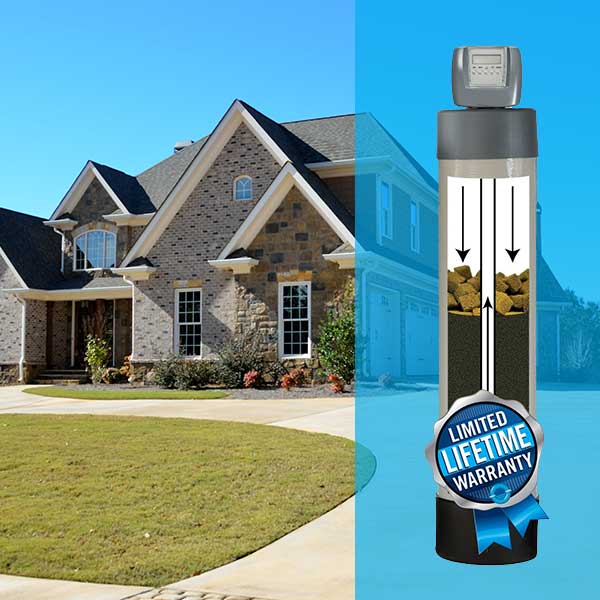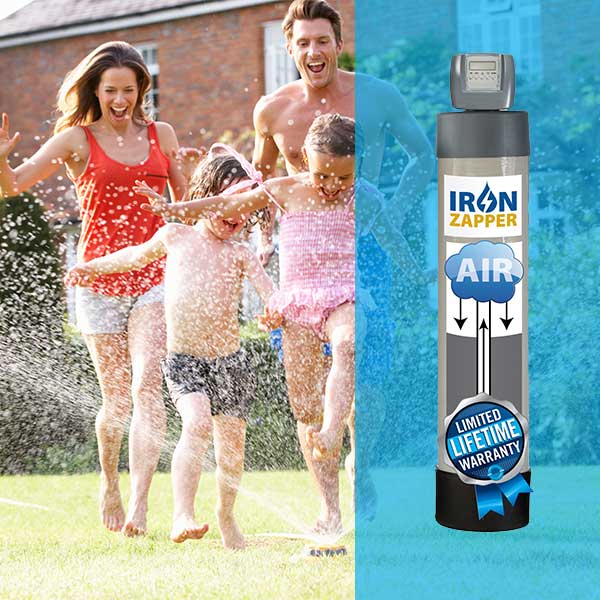What’s that Rotten Eggs smell?
The smell of rotten eggs isn’t one you’d invite into your home – let alone your bathroom. No one wants to smell like rotten eggs every day, so as soon as it begins to happen, you want to find the fix quickly. The odor of rotten eggs is typically caused by the levels of sulfur bacteria and hydrogen sulfide gas in your home or building’s water supply. The problem is also more common if your water supply comes from a well or still source.
Is it dangerous?
Any type of water contamination can raise red flags. There are over 316 chemicals found in drinking water in the United States, and while it’s not uncommon to smell sulfur coming from your tap, it’s also not something you want to leave unresolved. This is especially true when it comes to drinking water. The rotten egg odor may not be particularly pleasant, but the water isn’t typically dangerous to drink.
However, while this may be true in most cases, there is the occasional case that require additional treatment. When the odor is caused by sewage or other contaminates in the water supply, you’ll want to steer clear of it. Thus, it’s all about identifying where the issue is and remedying it quickly.
Identifying the issue
Hot v. cold: Check whether both your hot and cold-water taps disperse water that smells like rotten eggs. If you find that only your hot water does, this is an indication that the smell is being caused by a reaction in your water heater itself – rather than your water supply. This gives you a more focused area to work as opposed to the entire water supply.
Water supply: One indication that you have hydrogen sulfide in your water supply is the damage it may cause to your pipes. Hydrogen sulfide corrodes different types of metals and can also cause black stains on silverware and plumbing fixtures. If you begin to notice this in addition to the sulfur smell, you’ll know that the issue originates in your water supply. If this happens, your best bet is to call your local health department and notify them of the issue. They can have the water tested in a state certified laboratory to help you deduce the underlying issue. Your local county extension office may also be a resource for water testing.
Testing: As noted above, testing is the most clear-cut way to understand what’s going on in your water. The reason your water smells like rotten eggs is because of an imbalance of chemicals and bacteria. Testing this and getting it back in balance is the best way to enjoy safe water consumption (and to get rid of that nasty smell!).
Start by locating the source of hydrogen sulfide or sulfur bacteria in your water source. Then, check for proper ventilation so that gas has a way to scape. If you find that issue is related to your hot water heater, contact a water system professional who can either replace the magnesium anode or flush the heater with a chlorine bleach solution. A final step you can take to remedy this issue is utilizing a water filtration system. If your water comes from a still source (like a well), this can help eliminate any sulfur bacteria or other impurities.
What are sources of hydrogen sulfide?
One of the steps to remedying the odor is identifying the source, but you have to know what those sources are first. They include…
- Decay of organic matter
- Chemical reactions between soil and rock that contain sulfur
- Water heaters themselves
- Your water heater can produce hydrogen sulfide gas when they provide a warm environment for sulfate-reducing bacteria to live OR the magnesium anode supplies electrons that sustain the reaction that creates hydrogen sulfide.
How do I remove it from my drinking water?
If you’re most bothered by sulfur and rotten eggs in your drinking water, there are some ways that you can remove it. Say goodbye to tainted coffee and poor tasting foods! These processes will help return your water to normal.
- Aeration: In an aeration system, compressed air can be injected in the water system. By adding oxygen, the hydrogen sulfide will form an odorless, dissolved form of sulfur called sulfate. This may cause yellow sulfur particles to form, which will need to be filtered and removed before drinking.
- Carbon filters: Small amounts of hydrogen sulfide can be removed from water using activated carbon filters as they absorb the hydrogen sulfide. Depending on the amount of hydrogen sulfide in the water, these will need to be replaced every so often.
- Chlorination or chlorine injection: In a similar process to aeration, chlorination or chlorine injection will help to form a tasteless, odorless yellow particle that will need to be removed via sand or aggregate filter. Otherwise, it will form a yellow film on clothing and fixtures. A small amount of chlorine (or household laundry bleach) can quickly and easily help remedy this issue.
- Iron Zapper: This system helps to remove iron, hydrogen sulfide, and manganese from your water. It uses a natural catalyst to create an accelerated oxidation reaction and filtration layer to remove iron. Highly oxidized iron, hydrogen sulfide, and manganese particles result from this, and they now large enough for removable in a filter.
- Sulfur Shield Systems: These systems are designed to remove the hydrogen sulfide that is making your water smell like rotten eggs. Investing in a filtration system to remove it will make all the difference!
Final thoughts
In short, your water smells like rotten eggs because of sulfur bacteria and hydrogen sulfide gas. It can originate from a number of places. Whether you discover it’s from your water supply, hot water or elsewhere, it’s essential to rule out any hazardous implications it could have on your health. Once you do that, the smell is usually harmless, and you can remove it from drinking water using aeration, carbon filters or chlorine injection.


